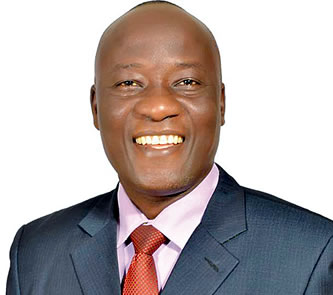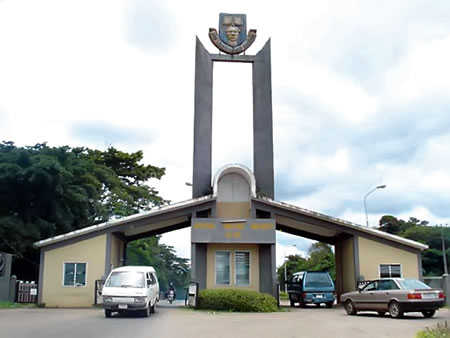OLAMIDE ENIOLA writes that the current strike embarked on by the Academic Staff Union of Universities has not been fully implemented in Obafemi Awolowo University, Ile Ife, noting that rival academic unions and how they see the strike is the major reason.
WHEN the Academic Staff Union of Universities declared a strike on November 4, 2018, most parents and students might not have envisaged that it was going to last for several months. Though industrial strikes by university lecturers are not new in the country and some of them had lasted several months, the current one is also threatening not to be different as it is already into its third month.
Father of 3 makes N200,000 monthly from charcoal business in Kaduna
The strike is a vicious cycle, occasioned by perceived government’s insensitivity to issues concerning the university system, remuneration of academic staff members, among several other issues which ASUU claims government has paid partial or no attention to. The union is also accusing the government of lacking in uttermost good faith for reneging on previous agreements.
However, while the strike has been total in most public universities, interestingly, full or partial academic activities are going on in about four government owned universities in the country: University of Ilorin, Kwara State University, Osun State University and Obafemi Awolowo University (OAU), Ile-Ife.

ASUU chairman
The University of Ilorin, which is one of the four public universities currently not on strike, has gained popularity among the Nigerian public for its opposition to ASUU›s stronghold on the lecturers, having had a running battle with the union in the past and succeeding in weaning its lecturers off the national body. Also Kwara State University at Malete has joined in the tradition of Unilorin by running a seamless academic programme devoid of ASUU interference. Though Osun State University has had to contend with a series of issues, it has remained neutral in the current ASUU/ government impasse.
However, like the University of Ilorin and KWASU, the OAU management has claimed it is in full academic session and not on strike. But a section of the institution›s academic staff is claiming otherwise, insisting it has complied fully with the directive of the national ASUU to abandon work. The reason for the conflicting stance is not far to seek: the academic community in that institution has become a house divided against itself. On one hand is the well-known ASUU and on the other hand is the relatively unknown and yet-to-be-registered Congress of University Academics (CONUA).
CONUA reportedly broke away from ASUU due to its dissatisfaction with a number of issues within ASUU, some of which include the latter’s leadership style and lack of financial transparency.
Speaking on the issue with Sunday Tribune, the chairman of OAU CONUA, Dr Niyi Sunmonu, said: “CONUA came into being as a result of issues that border on constitutional violations where ASUU members selected what they (wanted to) adhere to; violated financial/bank ethics, and were self-centered, unjust and coercive. Our efforts to confront these led to my suspension and a host of other 704 intellectuals.”
Addressing the same issue, the OAU ASUU chairman, Dr Adeola Egbedokun, agreed that the body of academics is divided, but maintained that, “there is a body of academics in the university.” Speaking further he said: “For ASUU in OAU, there is no division, even though there are some academics who have decided to turn their backs on their national body; who have decided to replicate ASUU, but which can never be like ASUU.”

Consequently, while ASUU members are fully observing the strike, CONUA members have continued to engage students in lectures and other academic activities. In courses co-taught by ASUU and CONUA members, CONUA members have been the ones taking students in such courses.
Speaking on why CONUA members are not on strike, Dr Sunmonu explained that: “The issue is settled. If you don’t belong to a union, you are not bound by their dictates. Whatever ASUU had decided has no implication on members of CONUA. Since we were not consulted before the industrial action was declared, it would be foolhardy (for us) to participate in it.”
Dr Egbedokun had no kind words for CONUA members who are not observing the strike action, while also berating them.
“They are saboteurs, no doubt about that! But as long as my members are on strike, I’m okay. One is free to join any group, but if one believes in the principles of ASUU, one will have an understanding of this strike. What they don’t know is that taking classes signals to the government that we are pleased with how things are; (but the truth is) we are not pleased.
According to Mr Abiodun Olanrewaju, the Public Relations Officer of the university, the authorities of the institution is neutral in the matter, while stating that lecturers could join whichever group they like.
“As far as we now know that there is a split in the rank and file of our lecturers – and we are talking of adults who have constitutional rights to join any association they wish to – the management is neither saying ‘yes’ or ‘no’ to any of the two unions.
”So, lecturers who don’t want to teach have the constitutional rights not to teach; ditto for those who want to teach. We have our students on ground, and that is what a university runs on: the availability of students. They have been attending classes, tutorials and writing tests,” he stated.
According to Dr Sunmonu, CONUA had achieved something by keeping students in school and aided the university in running an uninterrupted academic calendar.

CONUA chairman
The OAU ASUU chairman, Dr Egbedokun, however, thinks differently. For him, running a smooth academic calendar should not be the goal in a country like Nigeria where things are abnormal.
“It is not the first time ASUU will go on strike and the academic calendar is affected. But is Nigeria a normal state? Are government and things working the way they should?” he queried.
Continuing, he said: “If somebody is running after the calendar, we are just missing the point because it won’t help, but damage the students for two reasons. Our students may not be able to cope if government introduces tuition into university education, and government won’t take us serious on our needs.”
Though the school management has released the time table for 2017/18 Rain semester’s examination, slated to start tomorrow, January 14, 2019, the extent to which the examinations can successfully hold has been a major source of concern, as academic activities in some departments have been totally paralysed.
Expectedly, CONUA members are willing to conduct exams, as the chairman posited that, “When you teach a course, it is incomplete until you examine and grade the course. I think it behoves any academic who has taught his or her courses to be prepared to examine and grade students. And I think our members are up to the task in that aspect. Exam timetable is out; the university has released examination timetable. Our members are prepared for exams.”

Dr. Egbedokun said ASUU would not submit questions for exams and that there is no exam around the corner. In a press statement released last Monday, the body warned that any exam conducted, when the students have not been taken 70 per cent of their courses, will be “null and void.”
Dr Egbedokun also warned that: “if anything happened in any way at the purported examinations, the Vice Chancellor, the Deans, the Heads of Departments and any individual involved will be held responsible.”
For students, the latest developments are confusing. Olayinka Ayomide Helen, a Part 4 student of Microbiology, told Sunday Tribune that “Lectures are not holding at all in my department, so lecturers have not been coming for classes. I would have preferred a total paralysis of academic activities on campus, and not this scenario where some departments are working and we are lagging behind.
“I don’t think the exams can hold, but they might decide to give an ultimatum to lecturers to round-off lectures. This may pressurise members of ASUU to succumb, which ultimately would result in exams being held as scheduled. To a very large extent, I think the exams will hold successfully.”

A part five student of Civil Engineering, Yinka Olaniregun, agreed with Helen on certainty that exams will hold. She said: “Although about 90 per cent of lecturers in my department are not on strike, I feel they should have joined hands with their colleagues to achieve common goals. But then I think the exams will hold in my department, because we have finished all our lectures.”
Ogbonna Joy Oluchi, a Part 4 student of English differed. She said “60 per cent of our lectures are holding for Language students and 40 per cent for Literature students. I don’t want lectures stopped totally because I want to graduate as soon as possible. The lecturers teaching us have been doing well. We’ve even been assessed on some of the courses. My fear now is whether the exam will hold. I obviously don’t think examinations can or should hold without an extension in the calendar by two weeks.”
However, as far as the institution’s PRO is concerned, “The management is fully ready; everything is on course. At least students attended lectures and have written series of tests. The next thing is, according to our academic calendar, the conduct of exams is going ahead. Less than 20 among an academic staff population of over 1300” could not stop the conduct of examinations.
“Let’s assume that this is a bridge over a river; so when we get to the bridge, we will cross it. Let’s get there first; don’t let us speculate. I assure you that OAU will go on with the exams. But as for how we will do it? Let’s leave that for now.”
With the situation of things, more division and confusion seem likely as many students will, going by the PRO’s words, take their exams and many others may not. That, obviously will further create a bigger chasm as many students are likely to move to the next stage of their study, while yet many others would be rooted on the same spot.
WATCH TOP VIDEOS FROM NIGERIAN TRIBUNE TV
- Relationship Hangout: Public vs Private Proposals – Which Truly Wins in Love?
- “No” Is a Complete Sentence: Why You Should Stop Feeling Guilty
- Relationship Hangout: Friendship Talk 2025 – How to Be a Good Friend & Big Questions on Friendship
- Police Overpower Armed Robbers in Ibadan After Fierce Struggle






